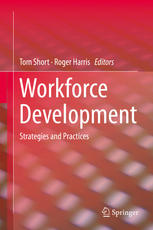

Most ebook files are in PDF format, so you can easily read them using various software such as Foxit Reader or directly on the Google Chrome browser.
Some ebook files are released by publishers in other formats such as .awz, .mobi, .epub, .fb2, etc. You may need to install specific software to read these formats on mobile/PC, such as Calibre.
Please read the tutorial at this link: https://ebookbell.com/faq
We offer FREE conversion to the popular formats you request; however, this may take some time. Therefore, right after payment, please email us, and we will try to provide the service as quickly as possible.
For some exceptional file formats or broken links (if any), please refrain from opening any disputes. Instead, email us first, and we will try to assist within a maximum of 6 hours.
EbookBell Team

4.4
32 reviewsThis book is the second in a series of two volumes that reviews a broad range of strategies and practices undertaken as workplace development activities in a post-global financial crisis period when organisational volatility and survival were foremost in the minds of leaders. Drawing mainly from a wide range of major research projects conducted Australia and with some contributions from international authors, this second book is a compilation of contemporary themes and applications that were developed from individual research projects. During the global financial crisis, the Australian economy out-performed many other developed countries, but it was not immune from international pressures such as global competition, market fluctuations and an increasingly mobile workforce. These issues are reflected in many of the chapters and the combined work will inform readers about the major workforce development challenges facing public and private sector organisations. The book blends relevant literature with rich empirical evidence gathered from large and small organisations and includes application tools developed by researchers who are experts in their field. This book will be of scholarly interest to a broad audience of academics, industry leaders, human resource practitioners and students in adult education, business, psychology and social science disciplines. Moreover, the book will be of interest to education and training professionals, management consultants, and more generally, people who follow the evolution of work and its impact on contemporary society.